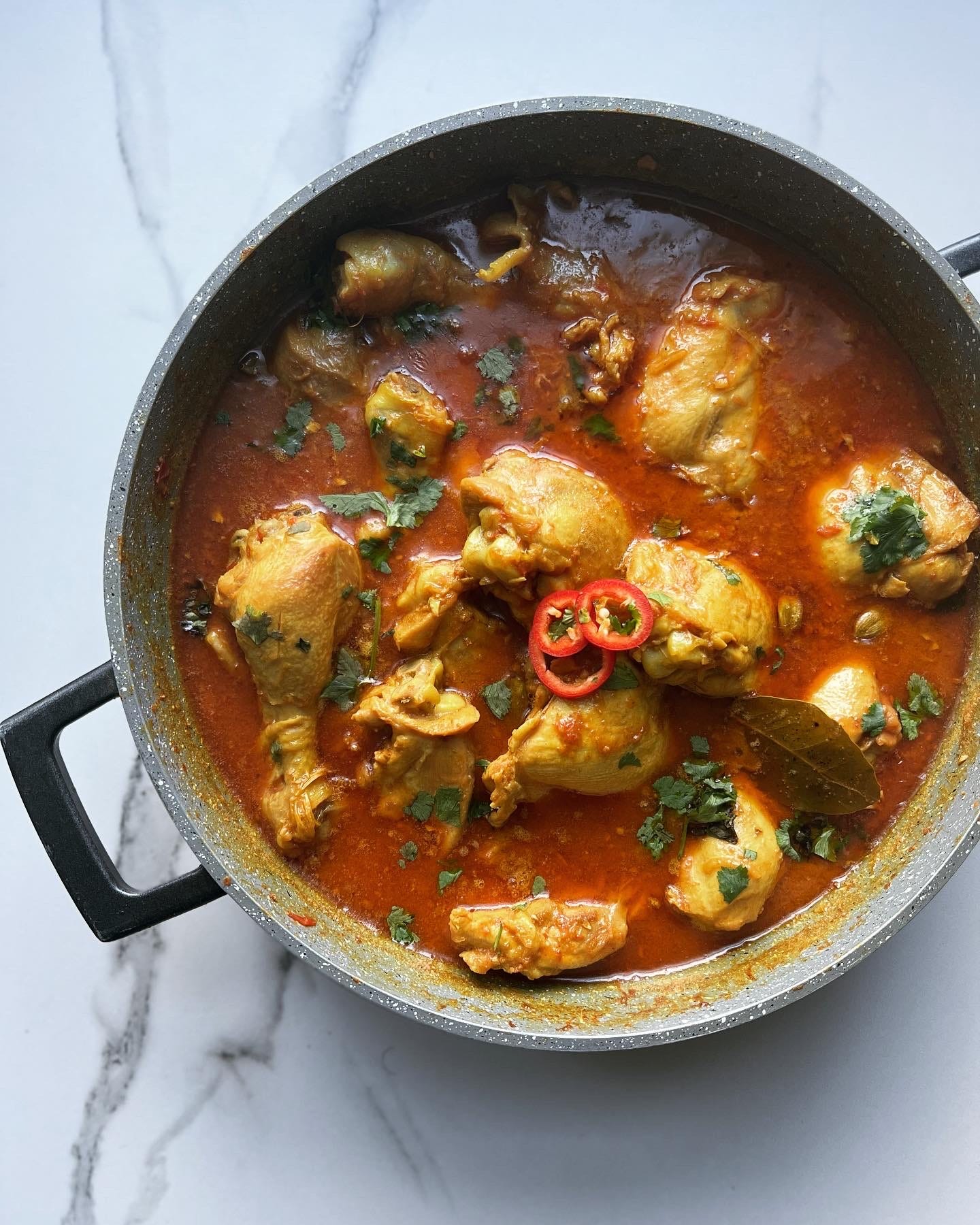Why food is not woke
My delight in being refered to as one of Jamie Oliver’s “offence advisors” recently, was quickly replaced by distaste. An outpouring of words followed about the relevance of this advisory. Questions arose on the need to navigate the “woke minefield” when it comes to what we eat and drink. It reinforced two well-established facts. Many who write about cultural appropriation don’t have a clue what it means, and that the word “woke” is the most misused and misinterpreted of them all. In its current populist (incorrect) guise, it also has no place in the world of food.
The word itself has context and meaning. Chewed, swallowed and evidently indigestible, it is now being spat out devoid of both. Emma Dabiri, adacemic and author of “What White People Can Do Next” has this explanation: “‘Staying woke’ refers to questioning the dominant paradigm, and occupying a state of awareness about structural oppressions”. It has origins in “African American Vernacular English (sometimes called AAVE)”, where “the state of being awake is often spoken as woke, as in, ‘I was sleeping, but now I’m woke’”.
The word only entered the Oxford Dictionary in 2016. In a short space of time it has become shorthand for a derogatory insult to describe those who care about social justice and cultural sensitivity. I turned to Jonathan Wilson, Professor of Brand Strategy & Culture at Regent’s University London and the electric guitar-playing, fluroscent-loving university professor I always wanted, to shed light on how this appropriating (!) came to be.
Professor Wilson points to two trends relevant to the food industry: “Firstly, marketers are seeing an opportunity to use the term to bolster their coolness and purpose credentials. Whether that is a form of appreciation or appropriation is up for audiences to debate on a case-by-case basis.” Queue the repositioning of M&Ms that no one asked for, nor cared about.
The second trend, he calls “far more troubling”: “Those are attempts to weaponise, warp, discredit and ridicule the use of the term - in addition to characterising those who stand up passionately against inequality and injustice, as being misinformed, irrational, misguided, naive, and unreasonable people. In doing so, lines of division are drawn, designed to split the crowd and entrench people in a view that ‘wokeness’ is almost a criminal activity - promoting civil unrest, disharmony, and an attack on law-abiding innocent people with varying degrees of earned privilege.”
Most food-related “woke bashing” falls into his trend no two. Unfortunately it is not only lazy and stupid, but also underlines a a lack of understanding about the food industry and the people who are part of it. Cooking, feeding and eating are inherently about nourishing, love and sharing. We care about what we plate up.
We are more aware, and dare I say it, awake to our moral and social obligations. In fact, I would argue that we feel it more acutely. Fuelled by good taste (see what I did there?), a love of diverse and challenging flavours, and exciting and broadening experiences, we know we can't ride roughshod over the people and cultures that inspire us. We’ve just been asleep at the hob before the Black Lives Matter movement took the lid off quietly simmering food writers from minoritised cultures.
Unsurprisingly, some people believe food needs protected status when it comes to scrutiny. However, it isn’t exempt. As Professor Wilson says: “Food for humans is not merely nutrition - they are also living cultural artifacts.” He argues: “Consideration should be given to such narratives when we understand, prepare, and appreciate food. Whether that’s Uncle Ben’s rice changing its brand name; the gentrification of dishes born out of poverty and now commanding premium prices; or authenticity judged also according to provenance, pedigree, and representation not only of the products, but also the people involved - behind, and in front. These all matter.”
Most of us know this implicitly. In the case of Jamie’s Empire Chicken, he didn’t need me to tell him colonialism is no laughing matter and most certainly doesn’t have a place in a recipe name. Interestingly, for all the crimes he has unwittingly committed, he has also championed and platformed food writers like me throughout his career. And has a keen sense of his moral and social obligations, even if it rattles chips and turkey twizzler lovers.
Whether you like it, get it or buy into it, the food industry is the perfect fit for our more morally and socially-conscious times. The sad truth about brandishing “woke” as a criticism, is that change is sometimes hard to stomach. But if “offence advisors” put a bad taste in your mouth, you may be putting a big foot in your mouth. And I can guarantee it won’t taste great either.
PS - I have no idea what an “offence advisor” is either. But if you’d like to read more about the consultancy I provide on cultural sensitivity, this might help.
Reality of the cookbook challenge
Who will win Jamie Oliver’s Great Cookbook Challenge? All of the contestants, of course. The great unspoken truth / worst kept secret of the cookbook publishing world is this: celebrity / big industry name backing and TV profile gives you a natural advantage over the competition.
This is not to say it’s an easy ride after. You still have to put in the hard graft, delivering the goods consistently and managing your personal brand.
The rest of the rest will have to pour their time, energy and effort into words that will compete with a vast selection of cookbooks. The category I judged for the Guild of Food Writers awards last year had a colossal 48 entries. You have to ask who can undertake this sort of enterprise. And then ask again why cookbook writing can be an elite space lacking in socio-economic diversity.
Once you have your cookbook, the rubber stamp of a cover endorsement is based on favours you can pull from mates. I was told in no uncertain terms that I would only be able to secure one if I knew a big name personally, which I didn’t. This automatically puts newcomers at a disadvantage. I was also told in no uncertain terms that the only cookbooks that sell are the ones with TV profile.
So while this piece in the Times was a more sobering read for many food writers than dry January, it neatly put the numbers I expected in full view. It reported this mindblowing statistic on “a saturated and brutal” market: “More than 5,000 cookery titles were released into the UK market in 2020, but only 556 sold more than 100 copies and only 48 sold more than 5,000.” Here’s a bunch of other things you should know:
It is genuinely hard work discovering new talent. Brand extensions for restaurateurs are a clear and obvious one, and work slightly differently as we all want a piece of our favourite chef at home
Social media doesn't always equal cookbook sales. It is also one single measure and alienates a vast cross-section of people who can't game algorithms or abide selfie videos
People don't buy cookbooks to cook from them - recipes are everywhere, writing, knowledge etc matters - but these can become secondary to the “whole package”
It remains to be seen if any of the talent on the Great Cookbook Challenge can write, but they will all do well, and I eagerly await the rest of the show.
If you’ve got this far…
The paid part of my newsletter is a 101 on Indian cooking, my first love and how I got into food writing and commentary in the first place. It covers a lot of intel and insights without the limitations of editorial count. Today I cover understanding spices and a recipe for this chicken curry. Please do sign up and tell your friends!







I enjoyed this post. Thank you for the perspective.